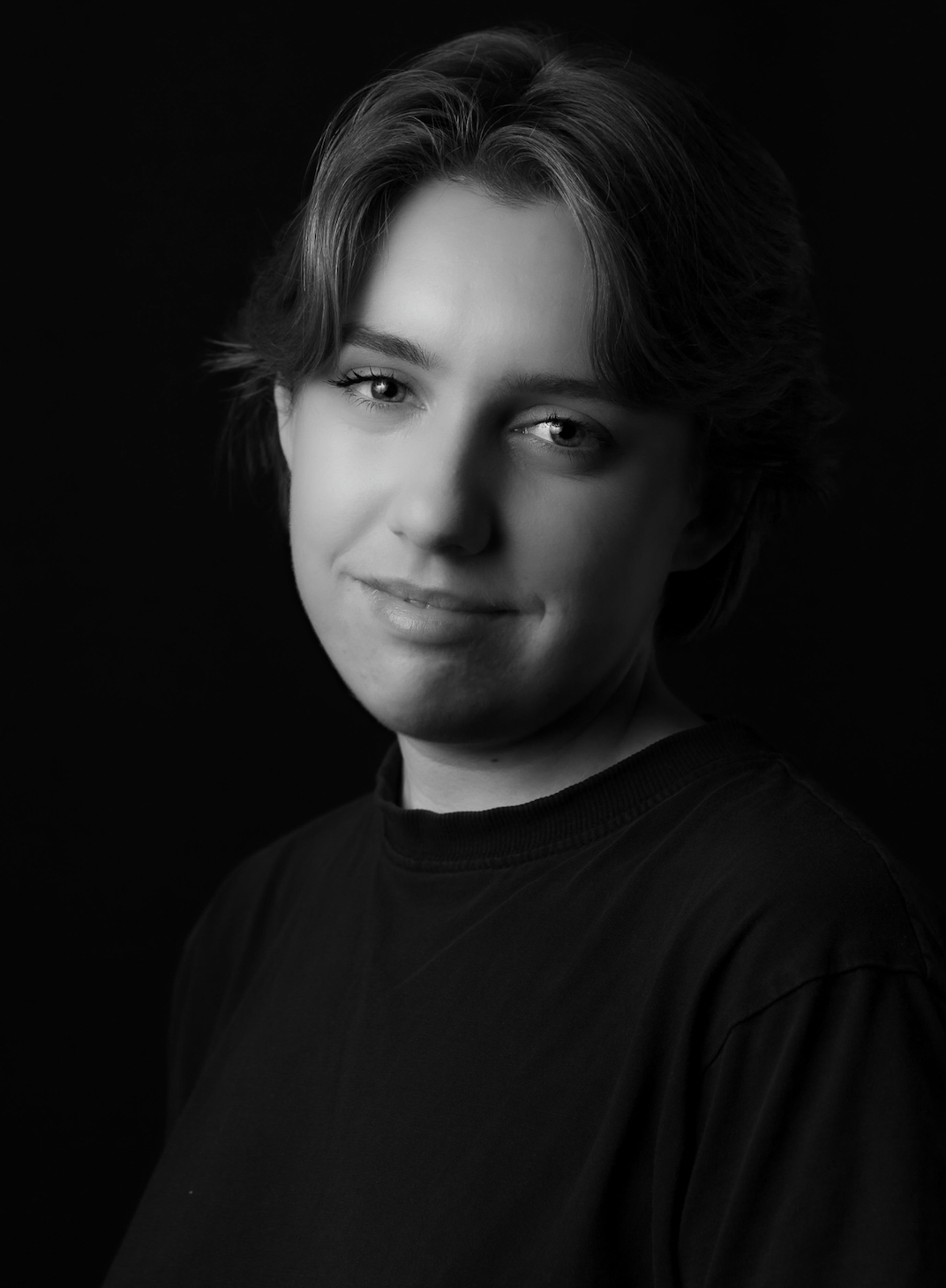frame 41 August 2023
In Conversation:
Becky Harrison with Kandace Siobhan Walker
Kandace Siobhan Walker’s debut collection Cowboy is an iridescent introduction to her transgressive imagination. The collection reaches far beyond her time spent working in retail in rural Wales, ‘analysing poems and short stories on the back of receipt paper’. Each poem conjures us into well-formed landscapes inspired by her Jamaican-Canadian, Saltwater Geechee and Welsh heritage. (She warns me this description is ‘subject to change’.)
Filled with sunlight and skies, the poems are transportive and bright, but also deeply grounded. They are tethered to the buried intersection where wit, culture and humanity connect with life, death and the elemental earth. At its best, the collection offers something at once layered and naked: ‘I’m absolutely dolphins’.
It came, then, as no surprise when the Forward Prize announced that Walker’s Cowboy was shortlisted for Best First Collection last month.
Before I had the joy of reading the collection myself, I spoke to Kandace about inspiration, her writing process and the place of art in our world.
Becky Harrison: Why did you call the collection Cowboy?
Kandace Siobhan Walker: It’s named after a poem in the collection. It’s not like a “cowboy” cowboy, it’s more a cowboy in the sense that my little sister never had to unload the dishwasher when she was a kid because she was the youngest which always pissed me off, but then when I would go visit my nan, I was her youngest grandchild, so my cousins would be like, ‘Kandace doesn’t have to do anything and she gets her own room in your house!’ and I’d just be chilling on the porch like, ‘Well… it is what it is’.
BH: You’re the cowboy there?
KSW: Exactly. I’m the one who’s allowed to transgress.
Kandace Siobhan Walker with Cowboy
BH: How do you self-describe when someone asks what you do?
KSW: I usually say I’m a writer. Or I say I’m an artist. Or sometimes depending on the person, I just tell them I’m unemployed. Because it gets a reaction from certain people and sometimes I’m just feeling contrarian.
BH: How has the process of finding a poetic voice been?
KSW: It was a very long process. I never really felt like I had a specific voice where I [could say] that’s Kandace until 2017/2018. I also grew up on Tumblr and was very much a “lowercase” kind of person, and gradually I realised it wasn’t really me in my heart.
So [I] began to read more widely, with the intention of seeing what it was that other poets did that I liked or felt like I could respond to.
BH: Recently, there has been a lot of support for “copying” as a poetic practice. How do you feel about copying?
KSW: Copying’s great. You know the saying about imitation. But I think when you’re learning something, copying is necessary. They don’t make kids learning the recorder compose a new piece. They’ve first got to learn a bunch of other songs…
I think there’s definitely loads of value in reading a poem you love and being like how did they do that? And trying to figure that out by doing a kind of cover of the poem.
BH: What effect do you want your poems to have on others?
KSW: I hope that people like them. It’s so hard for me to think about the effect they could have on other people because obviously that’s why I read poetry: because it has an effect on me.
I hope they have some kind of emotional resonance with other people – not everyone…Although, if it was everyone that would make me the greatest poet to ever live, and I don’t know if my ego needs that.
BH: What audiences do you hope to reach?
KSW: I think [the poems will] appeal to people who are a bit like me: a bit on the internet…People who read the news too much, or their Twitter feed. And then people who come from a complicated, twisty-turny background who enjoy that sense of: Where am I from?—Who knows! Find out next week… in my poems.
'Cowboy' by Kandace Siobhan Walker
BH: What effect do the poems you love have on you?
KSW: I really like when poems have this speculative quality. When they have something fantastical or science-fiction-y, which I think is in many ways a core feature of contemporary poetry.
There’s this poem that I really love called ‘Empire of Dreams’ by Charles Simic . It’s very stressful actually, the imagery, but the poem itself is so beautiful and the setting of it is so strange but also cosy and familiar.
BH: What parts do poetry and art play in your everyday life?
KSW: Lately, I’ve had a sense that I’d like there to be more of a sense of poetry and art, not just in my everyday life, but in our everyday lives, collectively. I get really mad about — this is a petty hill to die on—ugly modern architecture. I despise it.
I was ranting at my friend about pebbledash for a good half an hour the other day. It’s a way of making things have less individual character and communicate less…Everything should be at least interesting to look at or communicate something about the labour that went into it, or the lives of the people that created it or are housed within it.
The idea of the world as a backdrop really grates on me. I’d like the world to feel more like a world and less like set dressing… No one wants to live in a hideous house.
BH: How big a part does improvisation play in your poems?
KSW: I think improvisation, the value in it, is primarily very selfish in that it makes writing fun for me. It makes writing a poem like reading a poem, except I don’t know what’s going to happen…That’s where you find that sense of wonder and excitement.
BH: Finally, if you could describe the collection in a few words, how would you describe Cowboy?
KSW: If someone made a montage of all your birthday parties - that moment when you’re about to blow the candles out on the cake.



